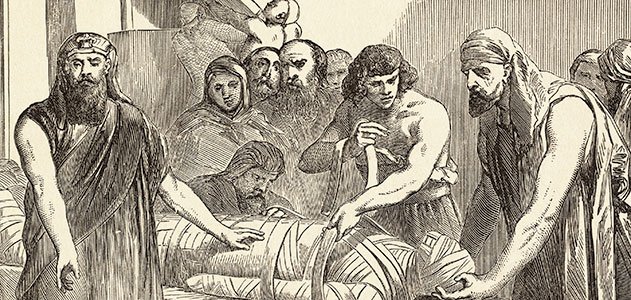The last line of a 17th century poem by John Donne prompted Louise Noble’s quest. “Women,” the line read, are not only “Sweetness and wit,” but “mummy, possessed.”
Sweetness and wit, sure. But mummy? In her search for an explanation, Noble, a lecturer of English at the University of New England in Australia, made a surprising discovery: That word recurs throughout the literature of early modern Europe, from Donne’s “Love’s Alchemy” to Shakespeare’s “Othello” and Edmund Spenser’s “The Faerie Queene,” because mummies and other preserved and fresh human remains were a common ingredient in the medicine of that time. In short: Not long ago, Europeans were cannibals.

